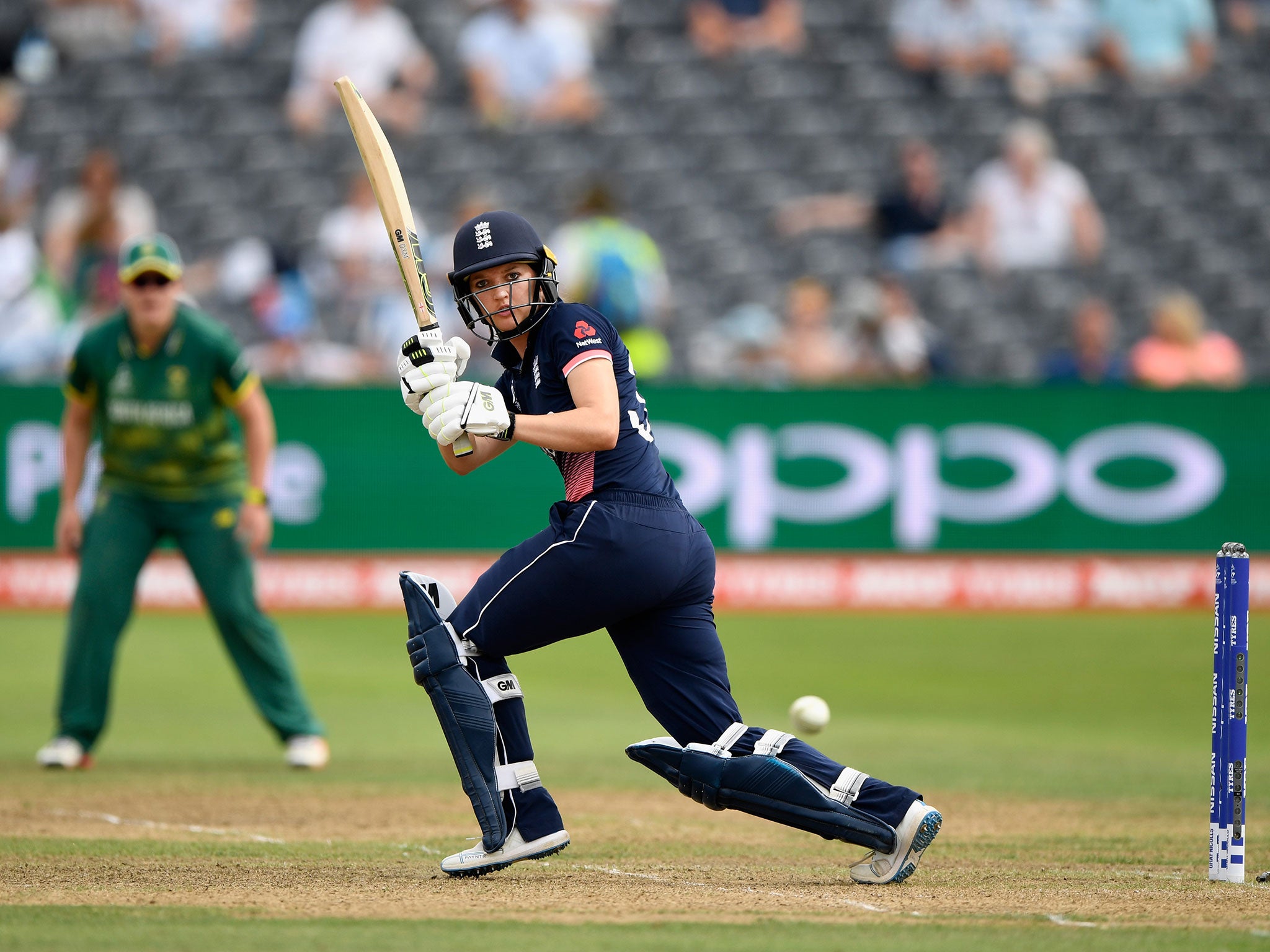England Women's World Cup victory would be fitting way to cap Sarah Taylor's remarkable comeback
Outside Edge: Taylor's re-emergence this summer, after nearly a year out from the game to deal with mental health issues, has been a joy to watch

Is cricket coming home? As yet there is no evidence of a Baddiel/Skinner revival to mark the Women’s World Cup as it approaches its conclusion, but there is something of their swaggering, jolly optimism to the way Heather Knight and her teammates have approached this tournament. And unlike England’s footballers in 1996 (and any time since), they might just go all the way.
Like Gazza et al, however, England’s female cricketers don’t half keep spectators on the edge of their seats at times, overcoming South Africa to reach the final with just two balls to spare in Bristol.
Anya Shrubsole’s fearless, winning boundary means England will take on either India or Australia at Lord’s on Sunday and somehow typified the team’s ability to win big moments. A full house will be cheering them on at cricket’s HQ, proving how far the women’s game has come in recent years.
The successful return of wicket-keeper Sarah Taylor has been particularly heart-warming. Having taken a break of nearly a year from the game to deal with mental health issues, she has scored 351 runs in the competition so far, including a vital half-century against South Africa.
Back in 2015 she made history by becoming the first woman to play in a men’s first grade match in Australia. It seemed then, before anxiety took hold, as if Taylor had the cricketing world at her feet. Her re-emergence this summer has been joyful to behold.
Should Taylor hold the World Cup aloft with Knight this weekend, it would be a fitting way to cap a remarkable comeback.
Do England have depth to grind out big scores?
News that England’s men might be in for a pay rise coincided inconveniently with a thoroughly ropey performance against South Africa at Trent Bridge. Given how fortress-like Nottingham has become for England, the collective failure in the second test is all the more difficult to explain away. Perhaps only Jimmy Anderson, over the course of the whole match, met the high expectations of the home fans.
The debate about whether England are too inflexible in their approach is well-worn. And the win-loss ratio in tests over the course of the last year (four victories against eight losses since the start of the Pakistan series in 2016) suggests their attacking instincts aren’t working well enough.
The more difficult question, however, is whether England are currently fielding enough players capable of grinding out big scores in tricky circumstances. Cook has the experience and the pedigree; Root has the supreme talent. But who would bank on any of Jennings, Ballance, Bairstow, Stokes or Ali to keep out high-quality bowlers on helpful pitches for session after session?
Joe Root evidently feels a little sore about some of the criticism he has come in for, perhaps inevitably given that he is only two tests into his captaincy career. Still, with a week off before the third match in the series, he must know there is work to do if England are to wrench back the initiative from the rejuvenated South Africans.
He will want to show faith in the XI who took to the field at Trent Bridge – but those who stay the course will need to justify their positions pronto.
Wishful thinking on foul language
One man who will certainly be back at the Oval next week is Kagiso Rabada. Banned in Nottingham for having accumulated four ‘demerit’ points, including one for telling Ben Stokes to “f*** off” at Lord’s, he will bring added oomph to a South African attack now high on confidence.
The ICC’s tougher penalties for on-field misdemeanours are in part a consequence of concern about bad behaviour in the sport at lower levels. The theory goes that if you stop international stars getting aggro with their opponents, amateurs won’t be at each other’s throats come their Sunday afternoon friendly.
It sounds, frankly, like wishful thinking. Anyone who has played in casual league cricket will remember with etched-on fury the dubious umpiring decisions – often made by fellow players – of which they have been on the receiving end. The effing and blinding that results is a consequence of those dodgy calls – and sometimes longstanding local grudges – not the behaviour of role models on TV.
Subscribe to Independent Premium to bookmark this article
Want to bookmark your favourite articles and stories to read or reference later? Start your Independent Premium subscription today.

Join our commenting forum
Join thought-provoking conversations, follow other Independent readers and see their replies